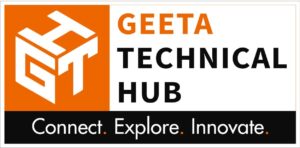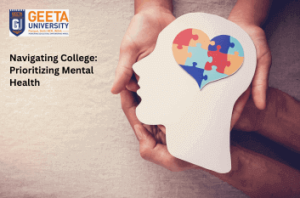Essential Management Skills Every Student should Develop
Uncategorized Uncategorized
Essential Management Skills Every Student should Develop
In the world that we live in, which is both fast-paced and dynamic, it is absolutely necessary to exhibit excellent management abilities in order to achieve success in both the academic and professional sectors. When students are getting ready to negotiate the complexity of the modern workforce, the cultivation of necessary management skills becomes an important component of their personal and professional growth. In this post, we will discuss the key talents that every student ought to concentrate on strengthening in order to improve their managerial abilities.
The Management of Time:
The capacity to effectively manage one’s time is certainly one of the most important talents that each student should possess. If students do not have the ability to effectively manage their time, they may find themselves in a position where they are unable to make their deadlines due to the excessive demands of their courses, assignments, and extracurricular activities. Developing the ability to prioritise work, establish goals that are attainable, and effectively manage time is a crucial skill. In order to cultivate a sense of control and reduce stress, it is important for students to devise a plan that allows for a balance between the duties of their personal lives and their academic obligations.
Capabilities in Communication:
The foundation of good management is the ability to communicate effectively. Students need to cultivate the capacity to explain their thoughts in a clear and concise manner, whether they do so verbally or in writing. The ability to master the art of public speaking, the ability to write intelligible emails, and the ability to participate successfully in group conversations are all included in this. In addition, active listening is equally important because it improves comprehension and helps to cultivate strong relationships. It is a skill that transcends academic contexts and proves to be important in the real world. The ability to effectively express ideas and information is a skill that everyone should possess.
Making a Decision by:
Having the ability to make decisions based on accurate information becomes increasingly important when students move into positions of leadership. Making a decision requires evaluating the various options that are accessible, taking into account the possible outcomes, and selecting the most appropriate course of action. Students should engage in activities that develop their analytical and critical thinking skills in order to develop the ability to make smart decisions in both academic and real-world situations. This ability not only improves academic success but also builds the groundwork for effective leadership in a variety of different career routes.
Competences in Leadership:
Students should make it a priority to develop their leadership qualities, regardless of the job paths they intend to pursue. The concept of leadership encompasses more than just the management of other people; it also involves motivating and influencing good change. A team’s ability to be motivated, the ability to delegate duties, and the ability to lead by example are all crucial leadership abilities. Students can effectively polish their leadership talents by participating in group projects, taking on leadership roles in student organisations, and looking for opportunities to be mentored by more experienced individuals.
Ability to Adapt:
In today’s society, when things are constantly changing, the capacity to adjust to new circumstances is an essential talent. Throughout their academic careers, students will face a wide variety of obstacles, unanticipated setbacks, and opportunities that need adaptability. A growth mentality, an openness to change, and the ability to maintain resilience in the face of adversity are all necessary components in the process of developing adaptation. Students who are able to adjust to novel circumstances and gain knowledge from their experiences are more ready to negotiate the challenging surroundings that they will encounter in both their academic and professional lives.
Approaches to Solving Problems:
The process of problem-solving is an essential component of efficient management. It is important for students to gain the ability to analyse problems, determine the underlying reasons of such difficulties, and come up with creative solutions. As a result of its ability to create a proactive response to issues, this skill is relevant across a wide range of fields. Enhancing students’ problem-solving abilities can be accomplished by activities such as participating in brainstorming sessions, engaging in case studies, and looking for opportunities to solve problems that are relevant to the real world.
Intelligent Emotional Competence:
When it comes to management, emotional intelligence is a significant tool that should not be overlooked. To possess this ability, one must be able to comprehend and control their own feelings, as well as empathise with other people. The development of self-awareness, self-regulation, and interpersonal skills is essential for students to acquire in order to successfully traverse social dynamics. Emotional intelligence is a factor that leads to successful teamwork, the settlement of conflicts, and overall success in interpersonal relationships.
Students will not only improve their academic performance if they concentrate on these critical management skills as they begin their academic journey, but they will also be better prepared for the problems and possibilities that they will face in their professional careers in the future. In the next sections of this essay, we will go deeper into each of these skills, giving students with useful ideas and insights that will allow them to actively grow and apply these skills in their day-to-day life.
Establishing connections:
It is a talent that can have a considerable impact on a student’s future prospects, particularly in the interwoven world of academia and industry, where creating and maintaining a professional network is particularly important. Establishing and maintaining ties with peers, instructors, professionals, and mentors is an essential part of networking. Students can broaden their circle of acquaintances, acquire useful insights, and open doors to possible possibilities by engaging in networking sessions, attending industry events, and joining relevant online groups. Each of these activities can help students grow their circle. When it comes to developing great networking abilities, it is not enough to simply connect with other people; rather, it is required to construct meaningful relationships that can contribute to both personal and professional development.
Understanding of Finances:
Despite the fact that it is not typically emphasised in traditional curricula, financial literacy is an essential ability for students who are transitioning into adult society. Comprehending the concept of budgeting, effectively managing one’s own finances, and making well-informed decisions regarding one’s finances are all essential components of responsible management. It is important for students to become familiar with fundamental financial principles, such as creating a budget, saving money, investing, and managing debt. Students who acquire financial literacy are equipped with the abilities necessary to make solid financial decisions, not only in their personal lives but also potentially in their future leadership roles, where they will be responsible for managing budgets and handling resources.
Abilities in Negotiability:
The art of negotiation is a skill that is applicable in many different facets of life and extends beyond the confines of the boardroom. Students ought to cultivate the capacity to bargain effectively, whether it is for the purpose of settling problems, negotiating for academic projects, or negotiating for career opportunities. It is necessary to possess this ability in order to comprehend the requirements and viewpoints of all the individuals concerned, to articulate one’s stance in a straightforward manner, and to locate solutions that are mutually beneficial. Teaching students how to negotiate helps them get ready for the intricacies of the professional world, where the ability to achieve agreements and concessions is frequently a critical component in determining whether or not they will be successful.
The Management of Projects:
It is crucial for students to have a solid understanding of the fundamentals of project management as they participate in group projects and other endeavours that need collaboration. Planning, organising, and carrying out tasks in order to accomplish particular objectives within a predetermined amount of time are all components of this competence. Gantt charts and agile frameworks are two examples of project management tools and approaches that students ought to introduce themselves to and become familiar with. Not only can the development of project management skills improve academic performance, but it also provides a solid foundation for the administration of complicated projects in future professional jobs.
Technological savvy:
In this day and age, having a strong understanding of technology is an essential talent that cannot be compromised. Students ought to make it a priority to enhance their technological competence, which should include being acquainted with various communication platforms, software for managing projects, and application tools for increasing productivity. It is possible for students to get a competitive advantage by keeping themselves up to date on emerging technology in their field of study or industry. Students who embrace technology not only improve their ability to complete academic duties, but they also better prepare themselves for the workforce, which is becoming increasingly dependent on digital abilities.
Competence in cultural matters:
For effective management, cultural competency is a skill that is becoming increasingly valuable in a world that is becoming increasingly globalised and diverse. In order to accomplish this, it is necessary to comprehend and value the difference between cultures, to communicate with people who come from a variety of backgrounds in a respectful manner, and to navigate surroundings that are multicultural. By participating in international study programmes, attending cultural events, or working together with classmates who come from a variety of backgrounds, students should make it a point to actively seek out opportunities to interact with people who have various points of view. The cultivation of cultural competency not only enhances the quality of the educational experience but also leaves students in a position to thrive in places of employment that are diverse.
In the following sections of this article, we will go deeper into each of these extra talents, offering students with tangible methods and practical insights that they may use to develop and utilise these skills in their academic and professional endeavours. Students have the opportunity to position themselves as well-rounded and flexible persons who are prepared to take on the difficulties that the ever-changing world presents by actively fostering these broad management abilities while they are in school.
The ability to bounce back:
One of the characteristics that distinguishes successful people from others is their ability to remain resilient in the face of obstacles, difficulties, and unpredictability. The ability to persevere in the face of adversity, to gain wisdom from one’s mistakes, and to keep a good attitude are critical components of resilience. In order for students to successfully traverse the ups and downs of academic life, it is essential for them to acquire resilience. Students are given the ability to persevere through trying times, adjust to unanticipated changes, and emerge stronger as a result of participating in demanding events when they possess this skill. Not only is resilience a personal strength, but it is also an essential managerial skill that enables individuals to have the ability to lead and inspire others when they are going through challenging circumstances.
The route towards being a competent manager and a successful individual entails the deliberate development of a wide range of abilities. In conclusion, this approach is necessary in order to achieve success. Each talent plays a significant part in determining the academic and professional trajectory of a student. These skills include the ability to manage time and communicate effectively, as well as to network, be financially literate, and be resilient. In the following sections, we will examine each of these talents in further detail. It is essential for students to understand that the development of these skills is not a one-time endeavour but rather an ongoing process that involves learning, practising, and refining.
Not only can students better prepare themselves for academic achievement, but they can also better prepare themselves for the dynamic challenges they will face in their future employment if they actively incorporate these critical managerial skills into their everyday life. Students will not only be able to distinguish themselves in the job market by demonstrating the capacity to adapt, communicate effectively, make decisions based on accurate information, and navigate varied surroundings, but they will also contribute to their own personal development and fulfilment. In the next sections of this article, we will present students with actionable techniques and guidance that can be put into practise to assist them in developing and applying these abilities, which will enable them to prosper in both academic and professional environments.

Geeta Technical Hub
Related Posts

Mastering Your Finances: Essential Tips for University Students – Geeta University
Mastering Your Finances: Essential Tips for University Students – Geeta University University is an exciting time filled with new experiences, learning opportunities, and personal growth. However, it’s also a time when many students face financial challenges and responsibilities for the

Top 6 Career Options in Engineering After Class 12th – Geeta University
Top 6 Career Options in Engineering After Class 12th – Geeta University One of the most popular fields for undergraduate study is engineering. There are numerous engineering degree programmes that can produce top-notch engineers and computer scientists. The engineering programmes

Navigating College: Prioritizing Mental Health – Geeta University
Navigating College: Prioritizing Mental Health – Geeta University College life is an exciting and transformative journey, but it can also bring various challenges and pressures that impact students’ mental health. It’s crucial to prioritize mental well-being to ensure a positive


